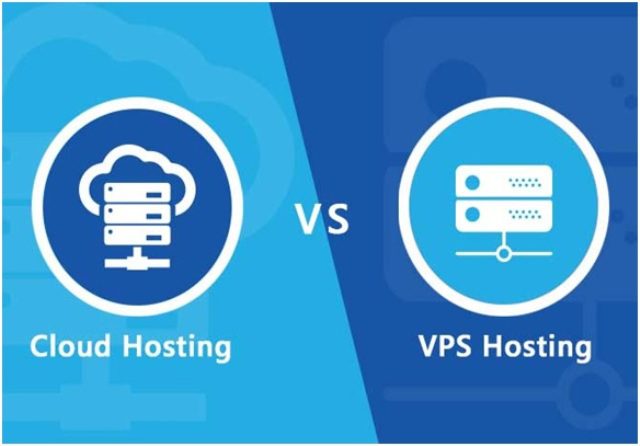
Choosing the right hosting solution for your newly-built website can be mind-boggling. With so many hosting solutions out there, the task can become complicated. With this brief post, we will zero in on two hosting solutions popular among entry-level websites: VPS and Cloud. By weighing up the pros and cons of both, we will find out how well they stack up against each other. So, let’s begin.
What is VPS Hosting?
VPS stands for Virtual Private Server. In VPS hosting, a large physical server is partitioned into several smaller virtual servers. Each virtual server operates in an isolated environment and works with its set of dedicated resources (CPU, RAM, disc space and bandwidth).
In VPS hosting, several websites share the same physical server but are hosted on different virtual servers. As a result, they remain somewhat immune to traffic spikes on tenant websites.
VPS hosting in India offers root access to the server allowing you to customize the server according to your preferences. In VPS hosting, there is a single point of failure i.e. the physical server. If that server fails, your website will go crashing. Your website can also get impacted if one of the tenant websites is consuming resources excessively.
Why should you use VPS Hosting?
VPS hosting is an ideal option for users who seek more control over their server environment and have the technical skills to customize the environment as needed.
Benefits of VPS Hosting
- Superior Performance: VPS delivers superior performance when compared to cheaper hosting solutions such as shared hosting. Here, you are guaranteed a certain amount of server resources. But you will still be limited by the size of your physical server. If other websites start hogging resources or you try to push up against the allocated limits, your performance will get affected.
- Customizable: In VPS hosting, you get root access to the server and have control over the operating system and server software. But there may be some restrictions on customization on account of the configuration of the physical server.
- Secure: Agreed, a virtual server is not as secure as a dedicated server, but it does surpass shared server. A virtual private server operates independently of any other site hosted on the same physical server. But, in case a tenant site gets affected by malware, it can jeopardize your security.
However, VPS hosting is not the most scalable solution. While VPS hosting does guarantee a certain amount of server resources, it will not be able to cope if your requirements exceed what has been offered in your hosting plan.
What is Cloud Hosting?
Cloud servers are also virtualized servers like VPS. However, in cloud hosting, instead of a single physical server, you have resources distributed over several physical servers housed in different locations. So, in cloud hosting several physical servers combine to form a virtualized ‘cloud’. Because the resources are drawn from several servers, it is easy for websites to scale resources up and down instantly as the need arises.
Cloud hosting services typically operate on a follow a ‘pay-as-you-go’ pricing model wherein the users are charged only for the resources they use. Cloud hosting is thus a highly cost-effective solution for websites where traffic fluctuates widely.
A cloud server, however, does come with root access. As a result, you cannot tweak server settings or install specific software as per your preference.
Why should you use Cloud Hosting?
Cloud hosting is a suitable choice for websites that need a scalable and flexible solution to cater to their fluctuating web traffic and don’t need much server customization.

Benefits of Cloud Hosting
- Scalability: In cloud hosting, you have an entire network of servers that you can access instantly to meet your traffic needs or for additional storage and thus scale with the utmost ease.
- Cost-effectiveness: Cloud hosting is a cost-effective solution as users pay only for the resources they consume and there are no upfront costs.
- Reliability: The high availability of servers in a cloud server ensures high uptime and performance for your website. In case one physical server crashes, your website will be shifted to another server.
Cloud servers can, however, have security issues. Since cloud servers are housed across multiple locations, they are vulnerable to attack from different sources. Plus, your data is distributed over several physical servers, so if you want to remove some sensitive data, you will need to remove it from each server.
VPS vs Cloud: The Final Verdict
In terms of overall performance, cloud hosting scores far better than VPS hosting. While VPS hosting in India is a reliable solution for small websites owing to its security and decent performance, it’s nowhere close to the cloud when it comes to scalability and availability. A cloud server opens access to a near unlimited supply of server resources allowing for a great deal of flexibility and uptime. What’s better, you need to pay just for what you have consumed.
So, what are your views on cloud and VPS hosting? Let us know in the comments below.
